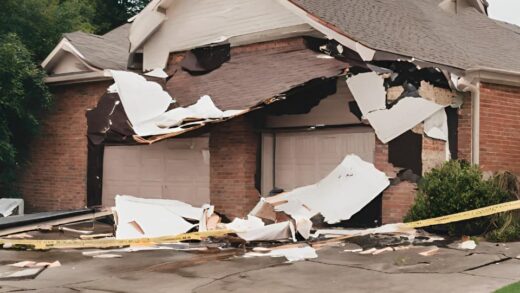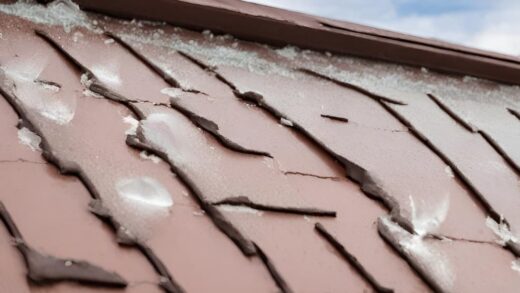In this blog post, we’ll explore the rights and responsibilities of tenants when it comes to property damage in rental homes, with a focus on maintaining a harmonious landlord-tenant relationship. We’ll also discuss how consulting a property damage attorney Houston TX can be invaluable in navigating complex property damage disputes and legal matters.
Tenant Responsibilities
1. Proper Maintenance
As a tenant, one of your primary responsibilities is to maintain the rental property in good condition. This includes routine upkeep and addressing any maintenance issues promptly. Regular maintenance not only keeps the property in good shape but also helps prevent minor problems from turning into major ones. Remember that neglecting maintenance can lead to disputes and even legal issues.
Tenants should routinely inspect the property and perform basic maintenance tasks, such as changing air filters, testing smoke detectors, and keeping the property clean and free from debris. By taking proactive steps, tenants can contribute to a well-maintained rental property.
2. Reporting Damage
Tenants should promptly report any damage or maintenance issues to the landlord or property manager. Effective communication is key here. Document the issues and inform your landlord in writing, either through email or a formal letter. This ensures that you have a record of the problem and your attempts to address it.
When reporting damage, be specific and provide as much detail as possible. Include photographs if applicable. Clear communication helps landlords understand the severity of the issue and can expedite the repair process.
3. Compliance with Lease Agreement
Tenants are expected to comply with the terms and conditions of the lease agreement. This includes not causing deliberate damage to the property, adhering to any restrictions on modifications, and following all rules outlined in the lease. Violating these provisions can lead to eviction or financial penalties.
It’s essential to thoroughly review the lease agreement before signing it to understand your obligations fully. If you have any questions or concerns about the terms, seek clarification from the landlord or property manager.
Landlord Responsibilities
1. Maintenance and Repairs
Landlords have a responsibility to ensure that the rental property is habitable and safe. This means addressing maintenance and repair issues promptly. If you report a problem, your landlord should take reasonable steps to fix it within a reasonable timeframe. Failure to do so can result in legal action.
Landlords should conduct regular inspections and maintenance to keep the property in good condition. This includes addressing issues with plumbing, electrical systems, heating and cooling, and structural elements. Timely maintenance helps prevent more significant problems down the line.
2. Security Deposit
Most landlords require tenants to provide a security deposit at the beginning of the lease. This deposit is meant to cover any damage beyond normal wear and tear. The landlord must follow specific procedures when deducting from the security deposit for damage. They should provide an itemized list of deductions, and the deductions should be reasonable and justifiable.
Landlords should be transparent about how they handle security deposits and the conditions under which deductions may be made. Providing clear communication in this regard helps build trust between landlords and tenants.
Tenant Rights
1. Right to a Habitable Property
Tenants have the right to live in a safe and habitable rental property. This means that the property should meet certain health and safety standards. If the property becomes uninhabitable due to damage or neglect, tenants have the right to request repairs or even terminate the lease in extreme cases.
Examples of conditions that can render a property uninhabitable include severe water damage, mold infestations, or structural issues that compromise the safety of the occupants. Tenants should promptly notify their landlords if such issues arise.
2. Privacy Rights
Tenants also have privacy rights. Landlords should not enter the rental property without proper notice except in emergencies or as otherwise specified in the lease agreement. Your privacy should be respected, and you should feel secure in your home.
It’s important for tenants to understand their privacy rights and be aware of the terms regarding landlord access in the lease agreement. If you believe your privacy is being violated, address the issue with your landlord or property manager.
Handling Property Damage
1. Accidental Damage vs. Negligence
It’s essential to differentiate between accidental damage and tenant negligence. Accidental damage is typically covered by the landlord’s insurance policy or the tenant’s renter’s insurance. Tenant negligence, on the other hand, is the result of actions that could have been prevented. Understanding this distinction is crucial when dealing with property damage.
Accidental damage can include unforeseen events like a water pipe bursting due to freezing temperatures or accidental spills that cause damage to flooring. In such cases, tenants are not typically held responsible for the cost of repairs.
Tenant negligence, on the other hand, refers to damage caused by the tenant’s failure to take reasonable care of the property. Examples include failing to report a leak, intentionally damaging walls or fixtures, or neglecting to maintain appliances properly.
2. Dispute Resolution
If a dispute arises between the tenant and landlord regarding property damage, it’s essential to seek resolution through proper channels. This may involve mediation, arbitration, or even small claims court. In some cases, consulting a property damage attorney can be beneficial, especially if the dispute escalates.
A property damage attorney specializes in handling cases related to property damage claims. They can provide legal advice, negotiate with the landlord or their insurance company, and represent tenants’ interests in court if necessary. While not all property damage disputes require legal intervention, having an attorney can be valuable when disputes become complex or contentious.
Conclusion
Understanding your rights and responsibilities as a tenant when it comes to property damage is vital for a successful and stress-free renting experience. By properly maintaining the rental property, reporting damage promptly, and complying with the lease agreement, tenants can help maintain a positive relationship with their landlords. Landlords, in turn, must fulfill their obligations regarding maintenance, repairs, and security deposits.
Remember that effective communication is key when dealing with property damage issues. If disputes arise that cannot be resolved through communication and negotiation, seeking legal advice from a property damage attorney may be the next step. Ultimately, both tenants and landlords share the goal of maintaining a safe and habitable rental property while upholding their respective rights and responsibilities.
By understanding and following these guidelines, you can ensure a smoother rental experience and avoid unnecessary conflicts related to property damage.


